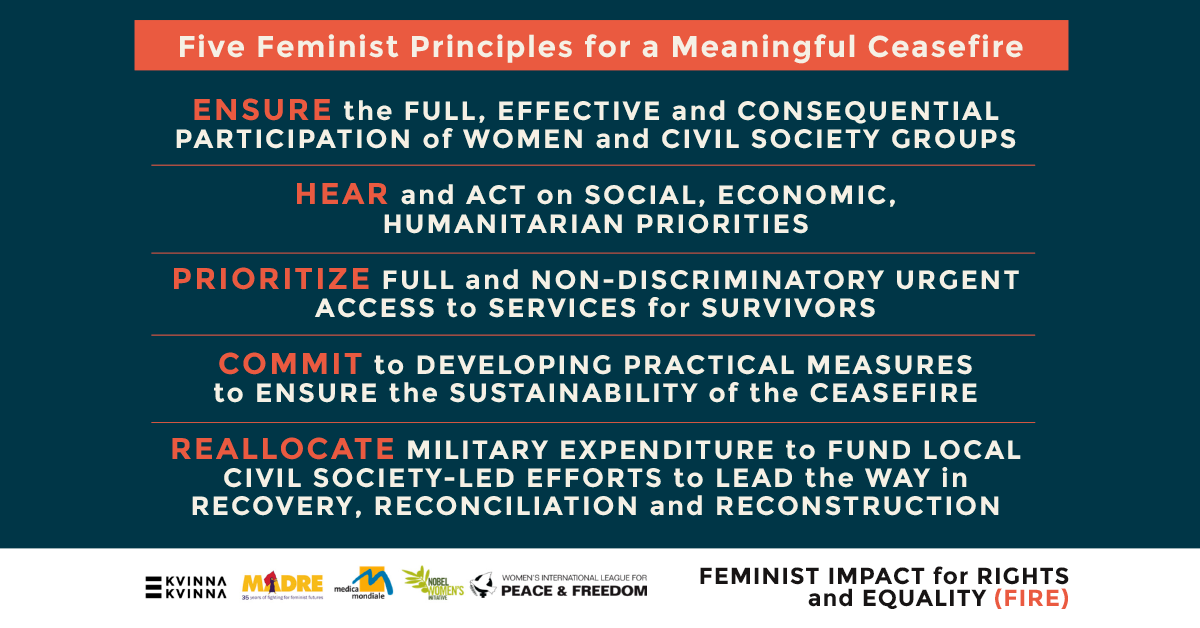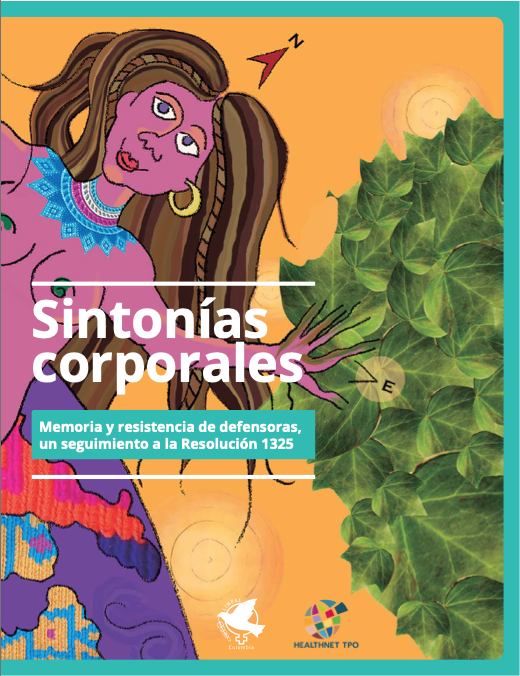May 2020 WPS Monitor: Brokering a Feminist Global Ceasefire
New WILPF Resource: "Centering Women, Peace and Security in Ceasefires"
As the world faces the common risk of COVID-19, there have been renewed calls for multilateral action for peace. UN Secretary-General António Guterres has called for an immediate and comprehensive global ceasefire, emphasising the need to reinforce diplomatic action, create viable conditions for delivery of humanitarian aid, and “bring hope to places that are among the most vulnerable” to the pandemic. Women-led civil society organisations, including WILPF members and partners, have been among the first to build on the momentum of this call to continue their vital work to bring peace to their communities.As of mid-May 2020, there are ongoing ceasefires in Cameroon, Sudan, Angola, and Thailand; ceasefires ended in Colombia and the Philippines; and ceasefires were broken in Yemen, Libya, and Myanmar. More than 60 member states have mobilised in support for the global ceasefire. However, stalled and ineffective multilateral action in the United Nations Security Council has meant that the call for a global ceasefire has not received the necessary support it should have for these ceasefires to be brokered and then translated into lasting peace. Warring parties have continued fighting during the pandemic, and in certain contexts, have even escalated violence.
Our new resource, “Centering Women, Peace and Security in Ceasefires”, contains an urgent reminder that UNSC action on COVID-19, including any work it does to promote a global ceasefire, must be linked with its existing recognition of the gendered impacts of conflict, the importance and agency of women in promoting peace, and center inclusivity and human security. The resource highlights case studies from Cameroon, Colombia, the Democratic Republic of the Congo, Syria, and Yemen in the current COVID-19 context, drawing from the recommendations of WILPF members and partners on the ground.
Read our new resource, "Centering Women, Peace and Security in Ceasefires".
Five Feminist Principles for a Meaningful Ceasefire
Building on our work on women’s meaningful participation, human rights and human security, and prevention, our programme helped to develop guiding principles on a meaningful ceasefire with our colleagues at the new consortium Feminist Impact for Rights and Equality (FIRE). FIRE is comprised of Kvinna till Kvinna Foundation, MADRE, medica mondiale, Nobel Women’s Initiative and Women’s International League for Peace and Freedom (WILPF), and has recently released five feminist principles for a meaningful and lasting global ceasefire.
WILPF Partner Statement: "On the frontlines: the impacts of the Yemeni conflict on women and children”
Read the powerful statement made recently by WILPF partner Rasha Jarhum, Director of Peace Track Initiative and co-founder of Women Solidarity Network Yemen, on COVID-19 and the structural barriers to women's meaningful participation in the Yemeni peace process. Rasha spoke at an informal virtual roundtable hosted by the Permanent Mission of the United Kingdom to the United Nations.
Responding to the COVID-19 Pandemic in Conflict-Affected Countries
On 29 April 2020, the UNSC Informal Expert Group (IEG) on Women, Peace and Security held a meeting on gender and COVID-19. Prior to the discussion, WILPF partner, Oula Ramadan spoke with member state and UN representatives in a CSO consultation on the situation in Syria. She highlighted the devastating impact of the COVID-19 pandemic to medically at-risk health groups as well as women, displaced persons, human rights defenders and detainees.
She called on member states to:
Maintain and increase access to humanitarian aid, as well as employ an inclusive and conflict-sensitive approach.
Encourage the WHO to implement a more inclusive approach, or implement a parallel approach to distribute these medical essentials to North-East and North-West Syria.
Pressure the Syrian regime to immediately release all detainees, suspend arrests to reduce the possibility of transmission, and open detention centers to international authorities.
Continue funding rights-based, human rights and feminist organizations, and give priority to funding rights-based organizations which work on mobilizing women to become decision-makers in their field. If women are not part of the decision-making process in Syria, there cannot be a sustainable and inclusive peace for Syrians.
Sintonías Corporales - New Report by LIMPAL Colombia
WILPF’s Section in Colombia, LIMPAL Colombia, has recently released the report titled Sintonías Corporales (Bodily Harmonies), which looks at the mental health and psychosocial issues of women human rights leaders in Colombia.
Women human rights defenders continue to be targeted and murdered in Colombia. In particular, people who stand up for women’s rights, small farmers, or Afro-Colombian and indigenous populations find themselves in great danger. This indisputably places a huge burden on their mental health.
COVID-19: Exposing the Fault Lines
The COVID-19 pandemic is a global crisis which has affected and will affect everyone all over the world in different ways, depending on many factors, including race, gender, social status, and geography. The consequences of this crisis will have differentiated effects on women, and long-lasting effects on society. This crisis serves as an unfortunate example of the fault lines that WILPF has been exposing throughout our history.
WILPF is running a series of articles written by WILPF members, sections, partners, staff and guest writers. These articles comment on the many facets of the COVID-19 pandemic, including the impacts on people who have been affected by armed conflict.




WILPF's Women, Peace and Security programme promotes the full and equal participation of women in all efforts to create and maintain international peace and security.
For more about our work, go to our website, follow us on Twitter, and subscribe to WILPF's other newsletters!